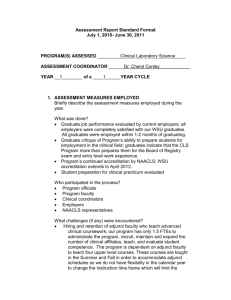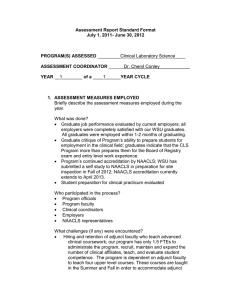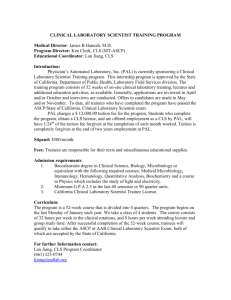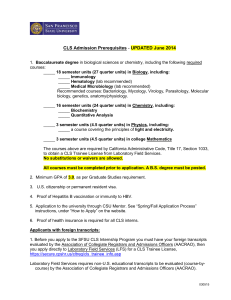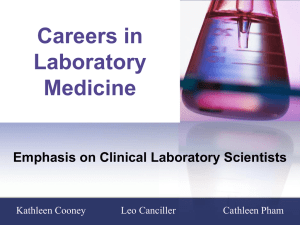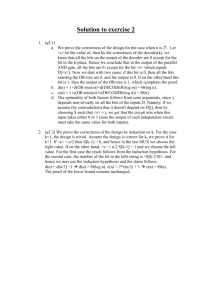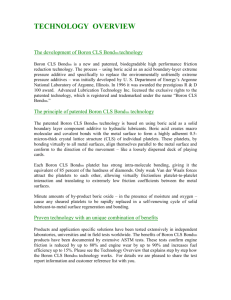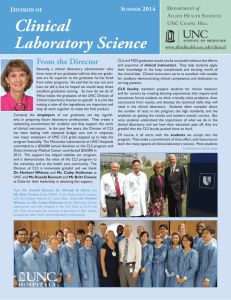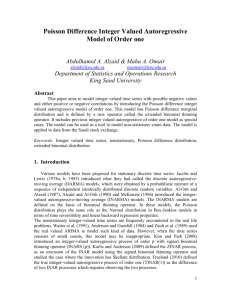Reply to PPC Draft Recommendationjan62011
advertisement
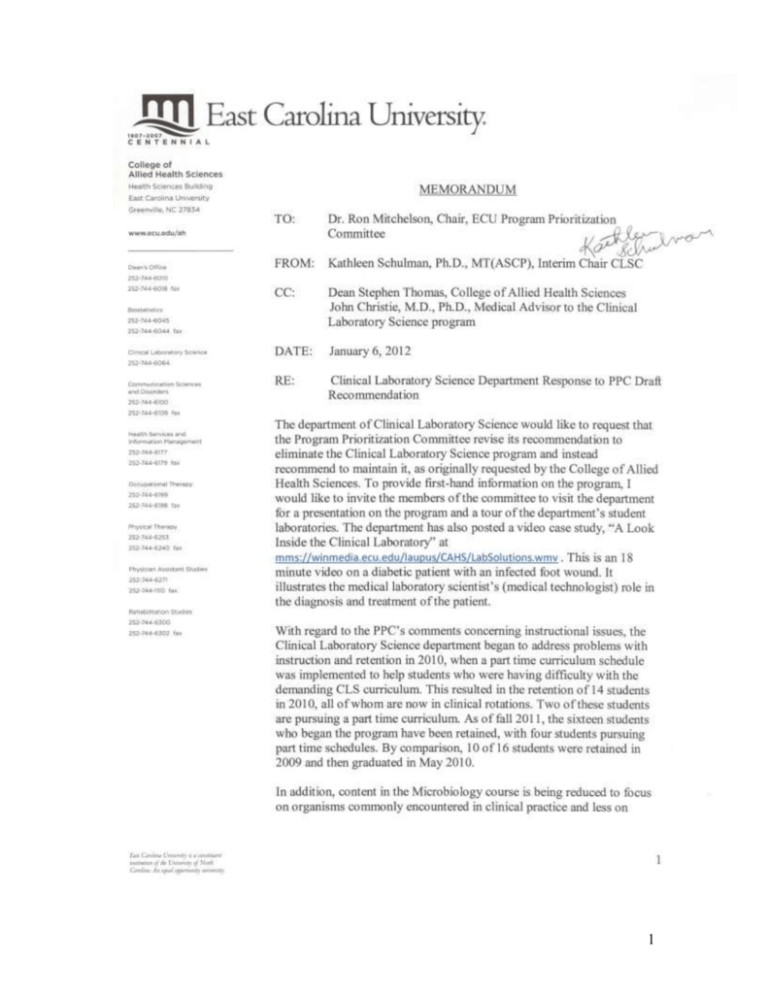
1 organisms that are rarely seen. The Microbiology courses have proven to be the most challenging for students in the CLS program, and those who are dismissed from the program usually have the lowest grades in these courses. The committee requested data from the department for 2009, 2010 and 2011. In January of 2010, the department chair, Dr. Bamberg became seriously ill and had to go out on medical leave. Dr. Bamberg eventually went out on permanent disability, and did not return. Since January of 2010 the department has had two full time faculty, and has been using additional part time faculty to teach the program curriculum. This loss of a faculty member required the remaining faculty to assume the responsibilities of the department chair and program director, which negatively impacted the department’s scholarly productivity. The Clinical Laboratory Science department has a new faculty member who has established a research program in the CLSC research lab. Dr. David Cistola joined the department as tenured faculty in 2008, and is the principal investigator of the NMR Diagnostics Research Laboratory, which conducts translational research in diabetes, cardiovascular disease & military blast injury. Dr. Cistola has also used this work to mentor two senior CLSC students each year, helping them to learn the principles of clinical research. He is also the lead principal investigator for Operation Re-entry NC (http://author.ecu.edu/cs-dhs/ah/operation_reentry.cfm), a university-wide initiative to address the rehabilitation and re-entry concerns of military personnel, veterans and their families. This initiative is supported by a five year, 10.4 million dollar grant from the U. S. Army Medical Research and Materiel Command. The PPC draft recommendations also discussed the expense of the CLS program and the low return on investment achieved. The CLS department proposes to reduce its faculty budget by returning an additional 15% ($15,397) of the salary for the currently unfilled full time CLS faculty position to CAHS as well as the chair’s stipend of $9362.00. $11,000 of the salary for the unfilled faculty position was returned at the beginning of this academic year. This would reduce the faculty salaries by $35,759.00. In addition, since 2010 the operating budget of the department has been reduced by 17.8 % from the original amount of $47,853 to $39, 352. To further reduce the budget, the CLS department is in discussions with the clinical laboratory at Pitt County Memorial Hospital to support the program by purchasing Microbiology lab supplies for the CLS program. This would reduce the operating budget by another $4,000 bringing the 2 total reduction to 26%. The total reduction in budget (faculty salaries and operating budget) for the department would be $48,260.00. The CLS department also continues to seek ways to reduce its operating budget by reducing the amount of other laboratory supplies used. Some mechanisms that are being used include having students work in groups on lab exercises, use of simulated laboratory exercises or demonstrations and using laboratory supplies donated by clinical affiliates. It is important, however for clinical laboratory science students to perform laboratory exercises before they begin clinical rotations. The on-campus laboratory courses teach students the laboratory techniques they will need for clinical rotations and also help them develop proficiency. This allows the student to assimilate into the professional laboratory environment faster and improves the learning experience. It also helps the clinical affiliates who assume responsibility for educating our students despite minimum staffing levels and their primary duty to perform patient laboratory tests in a timely and efficient manner. The department currently has eleven applications for the fall 2012 class (the deadline is February 1), and continues to receive inquiries from students in the Biology department at ECU and graduates with B.S. degrees in Biology from other institutions who are interested in careers in the clinical laboratory. Some of these applicants came to the university for the express purpose of applying to the clinical laboratory science program and have been taking courses at ECU to prepare for it. We hope that these proposed changes will allow the program to continue at East Carolina University. As one of the many healthcare degree programs at ECU, the clinical laboratory science program provides the healthcare system with practitioners who possess a unique body of knowledge that is essential in the diagnosis and treatment of patients, and plays a significant role in maintaining patient safety. The graduates of the CLS program have been an important source of laboratory professionals for hospitals in Eastern North Carolina. Half of the current laboratory staff at Pitt County Memorial Hospital is composed of graduates of the CLS program at ECU. Many of the laboratory professionals at Nash Healthcare Systems in Rocky Mount and Carolina East Medical Center (one third of the total laboratory staff) are also ECU CLS graduates. 3 As you will see from the letters of support sent to Vice Chancellor Horns by our clinical affiliates and Eastern North Carolina employers of our graduates, our alumni are highly regarded and actively recruited by them. As discussed in previous documents sent to the Program Prioritization Committee, the graduates of ECU’s clinical laboratory science program have a high first time pass rate on the national certification exam and are often employed within two months of graduation, with many of them receiving job offers while they are still in clinical rotation. Further evidence of the quality of our CLS students is the fact that the clinical affiliates will often hire them for part time positions in the laboratory while they are in clinical rotation. In the current senior class six of the fourteen seniors are employed part time by their clinical affiliates. They are filling a need for clinical laboratory professionals in Eastern North Carolina that continues to grow. The Clinical Laboratory Science department welcomes any comments the members of the Program Prioritization Committee have regarding our proposed changes. We look forward to the committee’s response and hope to be able to show you firsthand our state-of-the-art student laboratory facilities. 4


